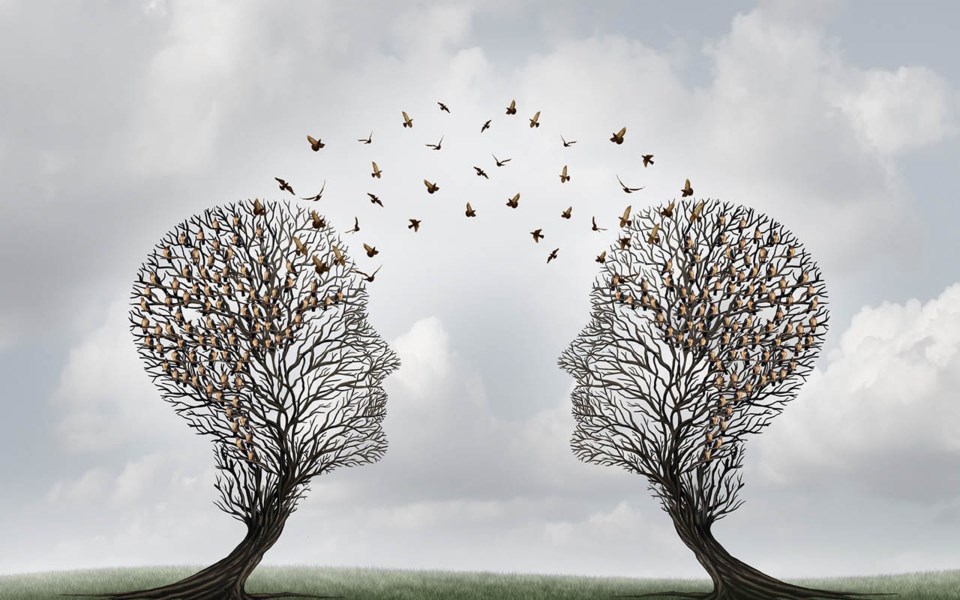A friend recently messaged me to say she was headed to the Ecological Society of Australia's annual conference and had been selected to moderate a workshop roundtable with 80 people under the theme Ecology in the Anthropocene. In it, she would lead discussion on the topic "Getting ecology into the community." Having attended my keynote address on science communication at the Canadian Herpetological Society's annual meeting in September, she wondered if I had any thoughts on this that she could add to her list of discussion points.
I did. But my first response was a question: did she mean disseminating knowledge about ecosystems and how they work (e.g. interconnectedness) or inculcating the practice of ecology-based thinking—which we currently don't engage in as a society and absolutely should?
The first, she averred, not just in the general sense of how ecology works, but in presenting conservation news to the public in a way that's concise and interesting, discussing initiatives that get people excited and involved like human-wildlife conflicts, environmental planning, promoting First Nations perspectives, etc. After a few moments, however, she allowed that my second point—that ecology-based thinking doesn't even occur to people—might be the root of the problem.
I agreed. The best way to get the ecology/conservation message into the community is to encourage a broad-based change in thinking and priorities.
We might start by disassembling the perpetual bromide of "balancing the economy and the environment." There's really no such thing—all development is a de facto loss for the environment and a gain for the economy, with only the degree of each in question. That's because communities in neoliberal democracies are rooted in the primacy of economical, and not ecological, thinking. Despite "economy" being an artificial construct and "environment" being all too real. If we came from a place of ecological thinking—i.e., what can be used without destroying the important ecological connections within an environment—the resulting economy would be an emergent property of a sustainable human ecology.
That's a heavy philosophical left turn for humanity, yet everything implicit in the daily news about impacts of the Anthropocene devolves immediately to this notion that the best path to embracing a conservation mentality (such as talk of a New Green Deal in the U.S.) is to change the conversation around virtually everything else—consumerism, energy, population, food security, climate justice, species at risk, wage stagnation, resource stewardship, environmental assessment, electoral reform—because everything is connected.
The challenge in such conversations—certainly for my friend's roundtable—isn't around incontrovertible facts, but in considering how both cognitive bias and social influences might advance behaviour around sustainability.
Cognitive biases include: 1) Status Quo Bias: People's resistance to change can be addressed by setting the community default to "opt out" rather than "opt in" to sustainable options; 2) Anchoring: Our tendency to rely on initial information can be leveraged by setting proper cognitive anchors early in a discussion; 3) Issue Framing: We have a strong aversion to loss, so highlighting what we stand to lose by unsustainable practices and policies catalyzes action; 4) Decoys: When folks have trouble making decisions, the desirability of sustainable options can be emphasized with less-desirable "decoy" (red herring) options.
Social influences fall into similar categories: 1) Norms: People want to fit in with what "most people do" and what "should be done," so communicating social norms around conservation encourages sustainable behaviours; 2) Observability: People behave more pro-socially when they think others know what they're doing, so increasing observability can promote sustainable behaviours; 3) Leaders: Who we receive information from can be as powerful as what we receive, so trusted messengers can amplify uptake; 4) Commitments: Our need to maintain prestige/reputation can be leveraged through public commitments or pledges to change behavior.
Considering these, my friend and I discussed the flaws inherent in a system where natural resources are only seen through the lens of infinite economic value, where the sole focus is the bottom line with no discussion over whether an activity should continue. In the end we agreed on a main discussion point that was all too obvious, as embodied in this Tweet from meteorologist and Grist writer Eric Holthaus: "An economy based on endless growth on a finite planet is inherently unsustainable, and by definition will destroy itself unless it is radically overhauled to put the preservation and beauty of life above all else."
Perhaps that was something 80 people could chew on.
Leslie Anthony is a science/environment writer and author who holds a doctorate in connecting the dots.




